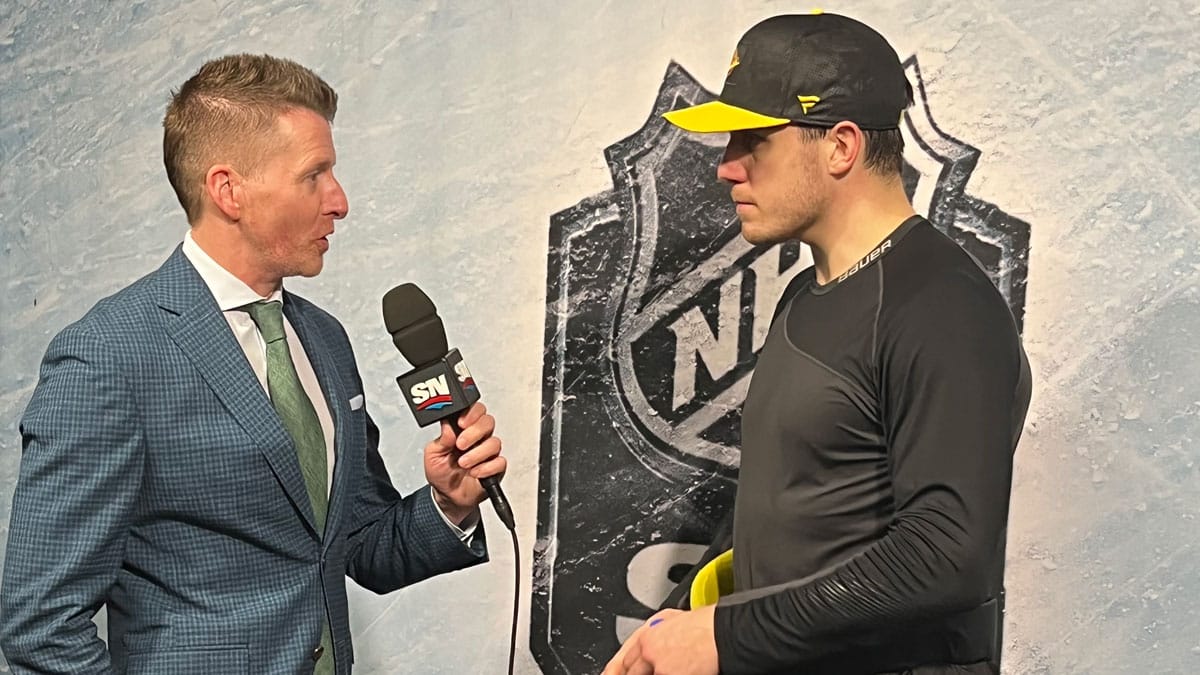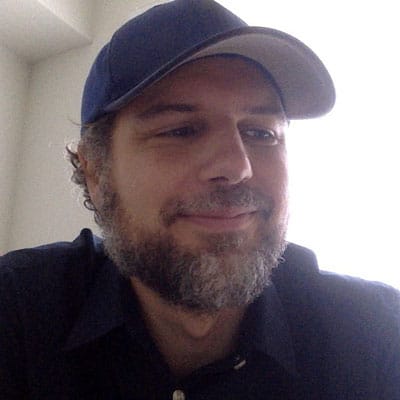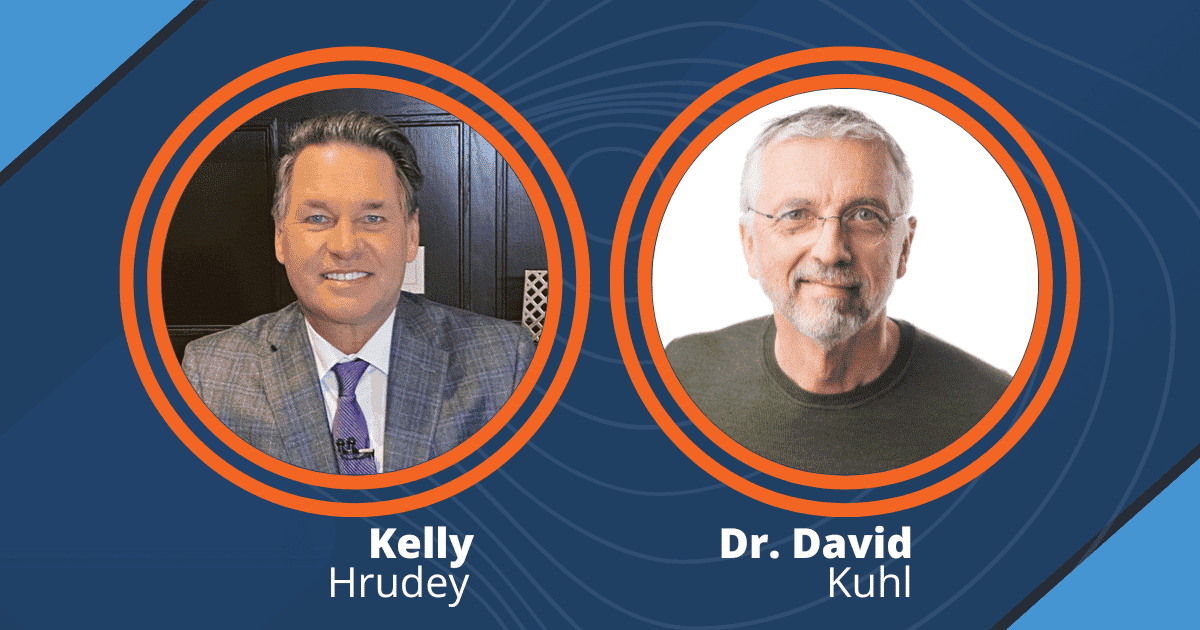You probably know Dan Murphy as a reporter on Rogers Sportsnet, Hockey Night in Canada or from watching Vancouver Canucks TV broadcasts. He’s also an important contributor to the Canadian Men’s Health Foundation (CMHF) as the host of the Don’t Change Much podcast. And now, we are happy to welcome Dan as the newest member of CMHF’s National Champions roster.
We sat down with Dan to hear his views on exercise and mental health. We couldn’t help but ask a few sports questions too.
What made you want to be a National Champion for the Canadian Men’s Health Foundation?
As I’ve gotten older, I’ve started to appreciate the benefits of being in shape and paying attention to health. That means doing the things, even the small things, to ensure I’m as healthy as possible; this includes taking care of my mental health. Awareness and advocacy for healthy living have become a bigger part of my life these days.
Around 2011 two major things happened that brought all of this into focus for me. First, one of my best friends died from colon cancer, and he had three young boys. Second was Rick Rypien, a former Vancouver Canucks player; when he passed, it showed me the importance of mental health.
To have this platform as a National Champion means I can help encourage men across the country to take that little bit of extra time for themselves: to get that check-up, get to the gym, or out for a run, or take that mental break, or just talk to someone, whatever it may be.
How has your view of mental health changed over the years?
As times have changed for the better and there’s more awareness around mental health, I’ve also changed for the better.
I used to go to high school with a guy named Mauro Ranallo. In fact, we used to work together at Kentucky Fried Chicken, of all places. Mauro is bipolar and has risen to the highest level as a combat sports commentator. He has called Manny Pacquiao fights, and Conor Mcgregor fights—the biggest stages. There’s even a great movie about his life called Bipolar Rock ‘N Roller.
In high school, we didn’t understand what he was dealing with. It wasn’t until I was in my 40s that I began to fully understand the mental health aspect of why he acted the way he did.
And then, in 2011, it hit home for me with the death of Rick Rypien. We need to continue to grow mental health awareness because I think there’s still more work to be done.
When men who aren’t that comfortable sharing see others who have a platform, like Mauro or Tyler Motte or Kevin Love of the NBA, sharing, then I think it becomes easier for everyone to share. And that’s a good thing.
How do you motivate yourself to keep up with your physical fitness?
For me, it’s been a few things as the years have gone by. In my twenties, it was a friend of mine, Larry, who motivated me to go to the gym with him after he said I looked like a bag of milk. I had never really gone to the gym; I’d go for runs and that kind of thing, but I learned a lot from Larry about lifting weights. He pushed me to get and stay in shape. So I think friends can have a big impact. Doing things together is always motivating.
Nowadays, I still go to the gym, and I usually go in the morning because I know that when the afternoon comes, I won’t want to do it. So it’s about knowing myself. When I’m on the road, it’s not always possible, but that’s when I have to remember things aren’t always going to be perfect. I need to be kind to myself.
As the host of the Don’t Change Much Podcast, what are your favourite interviews so far?
Don’t tell him this, but one has to be Kevin Bieksa. He’s just such a great guy and so witty that he’s always a good interview, going all the way back to his days with the Canucks. He’s such a riot, he can really give it to you, but he can also take it, and he always keeps me on my toes. So, I have to say Bieksa.
The other is John Herdman, the Canadian Men’s National Team soccer coach. He’s just one of the best speakers, communicators and motivators. You can immediately understand why he’s such a great coach because you get motivated just by listening to him.
So those two interviews stand out to me, but I’ve learned something from all of them, and I think all of them have great moments that have stuck with me.
What’s one thing that’s stuck with you the most as the host?
I’d say that when it comes to my fitness, I don’t have to be perfect, and the situation doesn’t have to be perfect. If I miss a day, I won’t beat myself up. And if I only have time for 20 minutes, then I’ll just go for the 20 minutes instead of skipping it because I don’t have an hour. Just do what I can, even if it’s just a walk and some fresh air.
You’ve seen so many sports moments and athletes as a broadcaster. What’s one of your favourites?
I’ve got a few that immediately jump to mind. I don’t think I could stick to just one. Definitely the Sedin’s last home game. That was a great one because I got to be on the ice at the end to interview them. That was a very special moment.
Another fun one was Vegas’ first season in the league and covering their playoff run with Hockey Night in Canada. That was incredible to be in that environment with fans who had never experienced playoff hockey before. Then there’s the 2000 Canadian Open in golf when Tiger Woods won it and hit one the best shots of his career. That was special.
What athletes have impressed you the most with their character beyond their sporting achievements?
Well, once again, I’d have to say the Sedins. They rose to the highest level, and they never changed. They would remember my wife’s name, my kid’s name, and even the dog’s name. It’s just special when people care like that.
Then, of course, there’s the money they give to BC Children’s Hospital and all the other big things they do. But, you know, so many athletes use their platform to help other people. It doesn’t have to be a big gesture always, but they’re doing what they can to help lift others. That resonates with me, and I think it’s something we all can do in our own way.
What are some of your favourite Dan Murphy moments? Share in the comments below!












Let’s Talk!
Did you enjoy this article? Let us know in the comments.
0 Comments